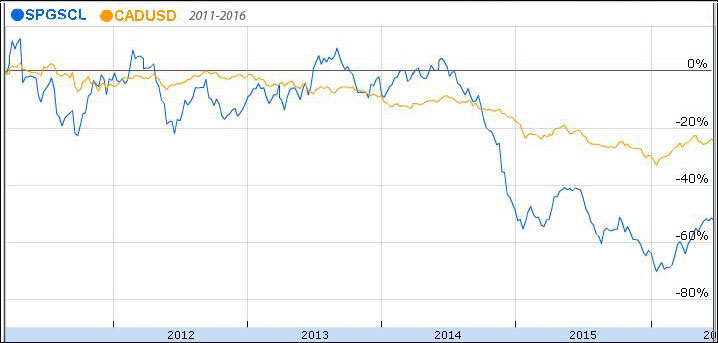Crude Oil and Forex Market Correlation (USDCAD, CADJPY, USDRUB, USDNOK)
One of the most important Forex and commodity correlations exists between USD/CAD and crude oil.
The correlation between the Canadian dollar versus the U.S. dollar and oil prices is very strong. Historically, there has been a positive correlation of about 0.75 to 0.80 between USD/CAD and oil prices.
■ USD/CAD and Oil Price: 0.75–0.80 positive correlation
■ CAD/JPY and Oil Price: 0.80 positive correlation
There are also other crude oil and Forex correlations, including USD/RUB (U.S. Dollar vs. Russian Ruble), USD/NOK (U.S. Dollar vs. Norwegian Krone), and CAD/JPY (Canadian Dollar vs. Japanese Yen).
📊 Canada’s Crude Oil Production and Exports
Here are some key figures related to Canada’s crude oil production and exports:
- In 2024, Canada's crude oil production rose 4.3% to 1.88 billion barrels
- Canada's exports surged from 1.16 million barrels per day during 1980–2023 to a record 3.4 million barrels per day in 2023
- In 2024, the United States imported $103.3 billion worth of Canadian crude oil
- Canada’s primary heavy crude blend, typically trades at a $10–15/barrel discount to West Texas Intermediate (WTI)
- U.S. refiners benefit from an estimated $19 billion annually by purchasing discounted Canadian crude and exporting higher-value light crude from domestic sources
🛢️ Explaining the Negative Correlation Between the U.S. Dollar and Crude Oil
All commodities are priced in U.S. Dollars; therefore, there is generally a negative correlation between the U.S. Dollar and commodity prices.
Here’s a simple example to explain why:
If demand and supply for a particular commodity (such as crude oil) remain stable and the U.S. Dollar appreciates by 10%, then the commodity price also appears to rise by 10% in dollar terms. However, because there is no additional demand to support this higher price, the commodity price will eventually fall to reach a new equilibrium between demand and supply. This means commodity prices tend to move in the opposite direction to the U.S. Dollar.
🛢️ Crude Oil and the USDCAD Correlation
As it was explained before, Crude Oil is negatively correlated to the US Dollar. Actually, Crude Oil is negatively correlated to USDCAD and positively correlated to CADUSD.
On the other hand, a large part of Canada’s exports to the US derives from the sale of Crude Oil. That means that if the price of Crude increases the value of Canada's exports to the US increases too. Canada exports about 2 million barrels of oil to the US every single day. Also, 85% of all Canada's exports are going to the US.
In other words, both sides of the USDCAD pair either affect or get affected by the Crude Oil.
Chart: USDCAD

📈 Trading CADJPY (Candian Dollar vs the Japanese Yen)
Another interesting commodity correlation exists between Crude Oil and CADJPY. Japan's economy is highly dependent on oil. Actually, Japan is the world's third-largest oil importer.
If the oil price moves considerably higher, then more Japanese Yen must be sold in order for Canadian Dollars to be bought. Therefore, each time Crude Oil price increases, CAD/JPY increases too. There is about a 0.8 positive correlation between Crude Oil and CADJPY.
🎯 Why Trading USDCAD and CADJPY instead of Buying Directly Crude Oil
There is a good reason for trading USDCAD Correlation instead of buying directly Crude Oil, and that reason is called interest rates.
The Canadian Dollar against the US Dollar carries a positive overnight rate (swap). That means that if you go long on the Canadian Dollar you can earn an additional interest rate. On the other hand, if you trade directly Crude Oil you will have to pay an overnight rate (negative swap value). When you stay in the market for long periods this interest-rate difference can prove significant.
□ Going Long on CADJPY and Short on USDCAD is better than buying directly Crude Oil
■ Crude Oil and Forex Correlation
ForexExperts.net (c)
🔗 READ MORE
» Introduction to Trading Strategies
♞ DAY-TRADE STRATEGIES
» Falsebreak Candle
» Bollinger-RSI
» Stochastic Day-Trade
» Breakout Strategy
♚ SWING-TRADE STRATEGIES
» Riding the Trend
» Moving Envelopes
» MACD Swing
♜ SCALPING STRATEGIES
» Stochastic Scalper
» Bollinger-RSI Scalping
» Hit-Run Trading
♟ STRATEGIES FOR BEGINNERS
» News-Trading
» Follow-The-Trend
» Support and Resistance
» Fibonacci Retracements
» Stochastics Trading
» Chart Patterns
💱 MARKET CORRELATIONS
» US Yields and USDCHF
» Crude Oil and Forex
» USDJPY and US Stock Indices
» AUD and Gold Price Correlation









